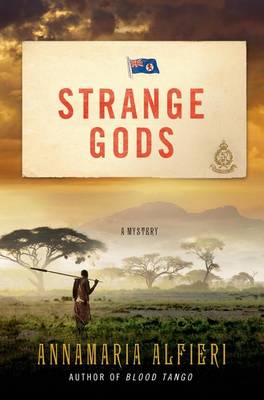
Heather
Written on Jan 23, 2016
Vera's uncle is the doctor at the Scottish mission where Vera lives. His body is found with a Masaai spear in his back. The colonial government wants a suspect in custody rapidly and seizes upon a local witch doctor who has been highly critical of the white doctor. The African people know that he would never have done this in this manner. A cursory investigation points at several English suspects but this is not acceptable to the local authorities.
Vera, Justin Tolliver an English policeman, and Kwai Libazo, a half Masaai/half Kikuyu policeman are left to investigate on their own if they want to get the real killer before an innocent man is executed.
This book captures an era where British landowners were running roughshod over the local tribes in Kenya. There were African police employed by the British but they were not allowed to be seen having any authority over Europeans. They weren't allowed to speak in meetings about cases. Police investigations did not bother to interview Kikuyu people who may have information about crimes. The goal was to show that this was a safe place for British people and to keep Africans subjugated.
Vera was born in Africa to Scottish parents. She was raised by her Kikuyu "second mother". She understands the unfairness of British rule and the resentments of the African people but can't do anything about it because of her sheltered status as an unmarried European woman.
Justin has come to love Africa. He is the second son of an Earl but his local status fell sharply when he joined the police. Now he is ostracized from society in Nairobi.
Kwai wants to learn about how the British investigate crimes but is seen as a traitor because he works for the occupiers. He has never fit in anywhere because of being half Masaai. He has never been fully accepted by either tribe.
There is a casual racism throughout this book that was probably typical of the time. Even characters who are supposed to be enlightened are dismissive of most Africans. Attempts are made to include the Kikuyu point of view but I'm not sure how effective it is. They seem a bit too passive for everything that is happening to them. This may be because we are only hearing the stories of Africans who have chosen to work closely with the British.This review was originally posted on Based On A True Story
